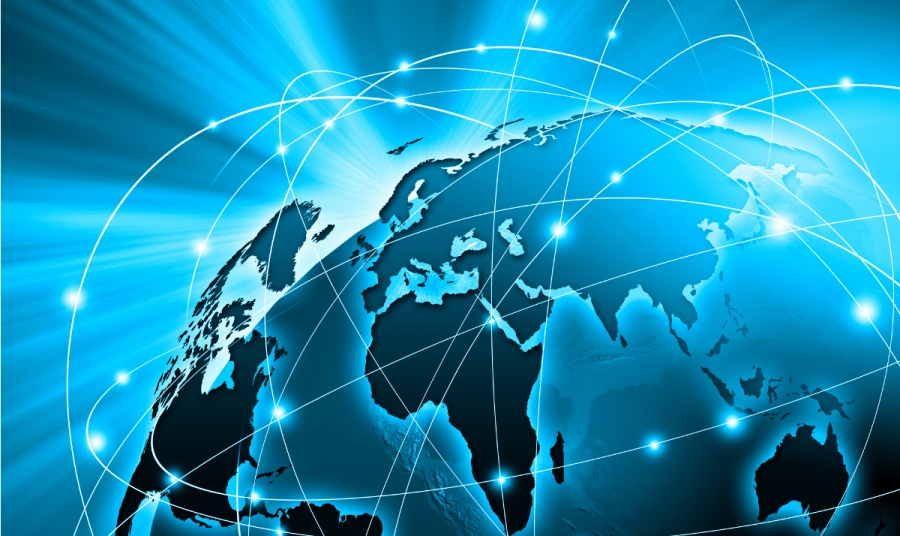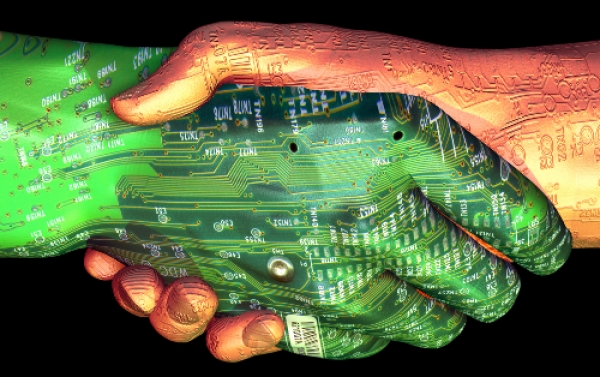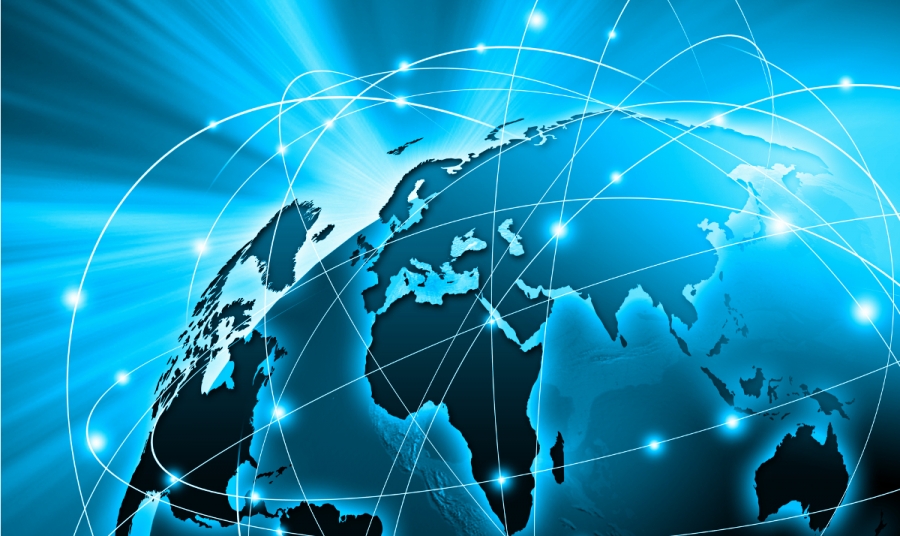Welcome to Around the World! This week we feature a discussion on the future of diplomacy and digital diplomacy.
 | Diplomacy+SocialGood: The Future of Diplomacy Join Diplomatic Courier, United Nations Foundation, and the Digital Diplomacy Coalition for an innovative half-day summit to explore the nexus between technology and social media and how they are changing modern diplomacy. The summit will bring together public diplomacy experts, leaders in policy, and influencers in global partnerships to discuss best practices and offer engaging insight into the future of diplomacy and global issues. Find more details about attending or watching the livestream here! |
 | Join the conversation at #DiplomacySM! If traditional diplomacy is a like a chessboard, as Dr. Anne-Marie Slaughter states, then how will the future of digital diplomacy work? How can diplomacy be used for social good? Which embassy or diplomatic mission do you think uses digital diplomacy most effectively? Let us know what you think the future of diplomacy will look like at #DiplomacySM on Twitter, Google+, and Facebook! |
 | Empowering Women and Girls Through Technology The technology gap takes different forms in the developed and developing world. In the developing world, access to and literacy in technology is often a challenge for women, held back by cultural norms; in the developed world, we see that in 2012 only 26 percent of computer science jobs were held by women. How do we address these dual, but related, challenges? On April 7th in Salt Lake City, WhiteHat Magazine and Diplomatic Courier co-hosted a panel discussion on the role of technology in empowering women, both in our communities and around the world. Watch the archived livestream of the discussion here. |
 | Interview with Helen Clark, UNDP Administrator and Former New Zealand Prime Minister United Nations Development Programme (UNDP) Administrator and former New Zealand Prime Minister Helen Clark shares her experience using social media to spur positive social change worldwide. Can a tweet improve lives for millions? Watch the interview here. |
 | Crowdfunding Diplomacy: The Next Frontier for Government If you combined government’s ability to convene and accelerate projects globally with the crowdfunding platform’s ability to engage local communities and investors in projects, you would have a potentially game-changing impact on grassroots diplomacy and development. Read more about it here! |
Around the Web
Ethnic Russians in eastern Ukraine have falsely claimed to be under assault to justify Russian intervention, Reuters reports the UN human rights office has stated. "Although there were some attacks against the ethnic Russian community, these were neither systematic nor widespread," the UN report, issued after two visits to Ukraine in March last month by UN Assistant Secretary-General for Human Rights Ivan Simonovic, stated. "Photographs of the Maidan protests greatly exaggerated stories of harassment of ethnic Russians by Ukrainian nationalist extremists. [...] Misinformed reports of them coming armed to persecute ethnic Russians in Crimea were systematically used to create a climate of fear and insecurity that reflected on support to integration of Crimea into the Russian Federation." The Russian Foreign Ministry criticized the report, saying it left out "facts that show that the activities of the 'new' authorities have been conducted in an atmosphere of violence and lawlessness" and ignored "the uncontrolled growth of aggressive nationalism and neo-Nazism" under Ukraine's new government. Russian officials declared on Tuesday that Ukraine was on the brink of civil war, seemingly seeking to justify the massive build up of troops just outside Ukraine's eastern border. Bloomberg reports: "At least 20 armored personnel carriers and two helicopters were stationed at a post on the border of Kharkiv and Donetsk regions, with four buses filled with troops seen in the area."
This Week in History
1989: Students in Beijing launch pro-democracy protests upon the death of former Communist Party leader Hu Yaobang. The students marched and gathered in Tiananmen Square to mourn, some leading a hunger strike that galvanized support for the demonstrators around the country and spread the protests to 400 cities by mid-May. On May 20th, martial law was declared, and 300,000 Chinese troops were deployed to Beijing and Tiananmen Square.
1996: The United States and Japan come to an agreement that U.S. military bases in Okinawa will gradually be returned to Japanese control in the Japan-U.S. Joint Declaration on Security, beginning a process of redefining the bilateral security relationship—and the United States' role in the Asia-Pacific—in a post-Cold War era.


a global affairs media network
Around the World!

April 14, 2014
Welcome to Around the World! This week we feature a discussion on the future of diplomacy and digital diplomacy.
 | Diplomacy+SocialGood: The Future of Diplomacy Join Diplomatic Courier, United Nations Foundation, and the Digital Diplomacy Coalition for an innovative half-day summit to explore the nexus between technology and social media and how they are changing modern diplomacy. The summit will bring together public diplomacy experts, leaders in policy, and influencers in global partnerships to discuss best practices and offer engaging insight into the future of diplomacy and global issues. Find more details about attending or watching the livestream here! |
 | Join the conversation at #DiplomacySM! If traditional diplomacy is a like a chessboard, as Dr. Anne-Marie Slaughter states, then how will the future of digital diplomacy work? How can diplomacy be used for social good? Which embassy or diplomatic mission do you think uses digital diplomacy most effectively? Let us know what you think the future of diplomacy will look like at #DiplomacySM on Twitter, Google+, and Facebook! |
 | Empowering Women and Girls Through Technology The technology gap takes different forms in the developed and developing world. In the developing world, access to and literacy in technology is often a challenge for women, held back by cultural norms; in the developed world, we see that in 2012 only 26 percent of computer science jobs were held by women. How do we address these dual, but related, challenges? On April 7th in Salt Lake City, WhiteHat Magazine and Diplomatic Courier co-hosted a panel discussion on the role of technology in empowering women, both in our communities and around the world. Watch the archived livestream of the discussion here. |
 | Interview with Helen Clark, UNDP Administrator and Former New Zealand Prime Minister United Nations Development Programme (UNDP) Administrator and former New Zealand Prime Minister Helen Clark shares her experience using social media to spur positive social change worldwide. Can a tweet improve lives for millions? Watch the interview here. |
 | Crowdfunding Diplomacy: The Next Frontier for Government If you combined government’s ability to convene and accelerate projects globally with the crowdfunding platform’s ability to engage local communities and investors in projects, you would have a potentially game-changing impact on grassroots diplomacy and development. Read more about it here! |
Around the Web
Ethnic Russians in eastern Ukraine have falsely claimed to be under assault to justify Russian intervention, Reuters reports the UN human rights office has stated. "Although there were some attacks against the ethnic Russian community, these were neither systematic nor widespread," the UN report, issued after two visits to Ukraine in March last month by UN Assistant Secretary-General for Human Rights Ivan Simonovic, stated. "Photographs of the Maidan protests greatly exaggerated stories of harassment of ethnic Russians by Ukrainian nationalist extremists. [...] Misinformed reports of them coming armed to persecute ethnic Russians in Crimea were systematically used to create a climate of fear and insecurity that reflected on support to integration of Crimea into the Russian Federation." The Russian Foreign Ministry criticized the report, saying it left out "facts that show that the activities of the 'new' authorities have been conducted in an atmosphere of violence and lawlessness" and ignored "the uncontrolled growth of aggressive nationalism and neo-Nazism" under Ukraine's new government. Russian officials declared on Tuesday that Ukraine was on the brink of civil war, seemingly seeking to justify the massive build up of troops just outside Ukraine's eastern border. Bloomberg reports: "At least 20 armored personnel carriers and two helicopters were stationed at a post on the border of Kharkiv and Donetsk regions, with four buses filled with troops seen in the area."
This Week in History
1989: Students in Beijing launch pro-democracy protests upon the death of former Communist Party leader Hu Yaobang. The students marched and gathered in Tiananmen Square to mourn, some leading a hunger strike that galvanized support for the demonstrators around the country and spread the protests to 400 cities by mid-May. On May 20th, martial law was declared, and 300,000 Chinese troops were deployed to Beijing and Tiananmen Square.
1996: The United States and Japan come to an agreement that U.S. military bases in Okinawa will gradually be returned to Japanese control in the Japan-U.S. Joint Declaration on Security, beginning a process of redefining the bilateral security relationship—and the United States' role in the Asia-Pacific—in a post-Cold War era.


